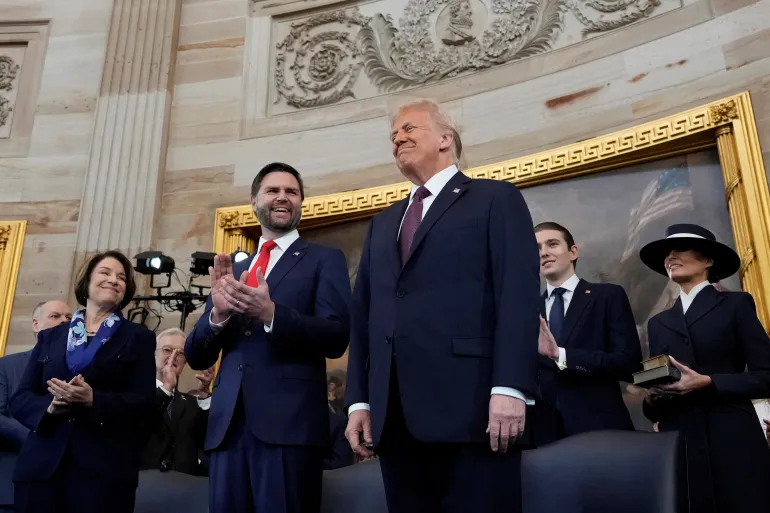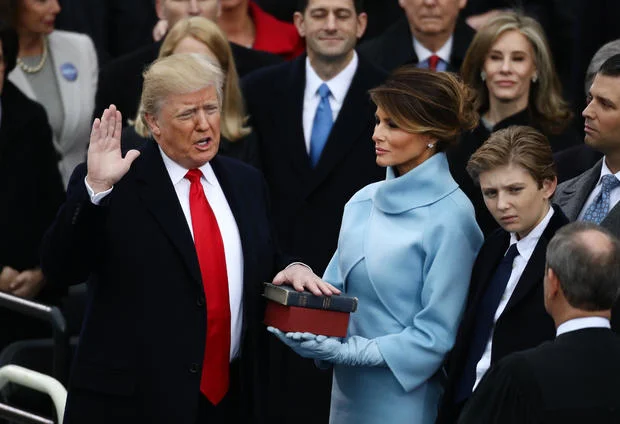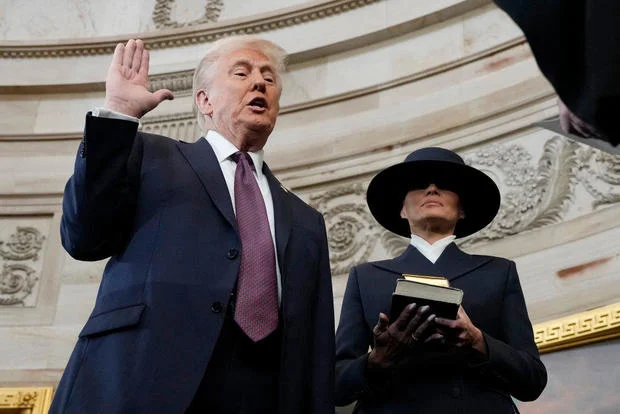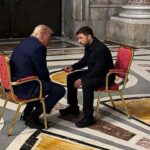The absence of President Donald Trump placing his hand on the Bible during his second inauguration has sparked widespread discussion among onlookers and constitutional experts.
While many questioned the deviation from tradition, legal scholars were quick to clarify that the gesture, though symbolic, is not a constitutional requirement for the oath of office.
Historically, most U.S. presidents have chosen to place their hand on a Bible during the ceremony, a practice rooted in tradition rather than law. Article VI of the U.S. Constitution explicitly states that no religious test shall be required for any office, emphasizing the secular nature of the oath. The Constitution simply mandates that the president swear or affirm to uphold it, leaving the inclusion of a Bible entirely optional.

At the ceremony, First Lady Melania Trump was seen holding two Bibles: one gifted to Trump by his mother during his childhood and the historic Lincoln Bible used by Abraham Lincoln in 1861. However, Trump chose not to place his hand on either Bible, a decision that has drawn mixed reactions.
This contrasts with Trump’s first inauguration in 2017, where he placed his hand on both the family Bible and the Lincoln Bible while taking the oath. According to Trump’s inaugural committee, the family Bible was gifted to him in 1955 to commemorate his graduation from Sunday Church Primary School at First Presbyterian Church in Jamaica, Queens.

Vice President JD Vance, however, followed the traditional route during his swearing-in earlier this week. Vance placed his hand on a family Bible belonging to his maternal great-grandmother, with his wife, Usha Vance, holding the cherished heirloom. Supreme Court Justice Brett Kavanaugh officiated the ceremony, upholding the longstanding practice.
While some see Trump’s decision as a break from convention, others view it as a personal interpretation of the oath. “The Bible has deep historical significance in these ceremonies, but its absence does not diminish the legality or validity of the oath,” noted constitutional scholar Dr. Helen Barrister.
As discussions continue, the event underscores the balance between personal expression and historical tradition in America’s evolving political landscape.








